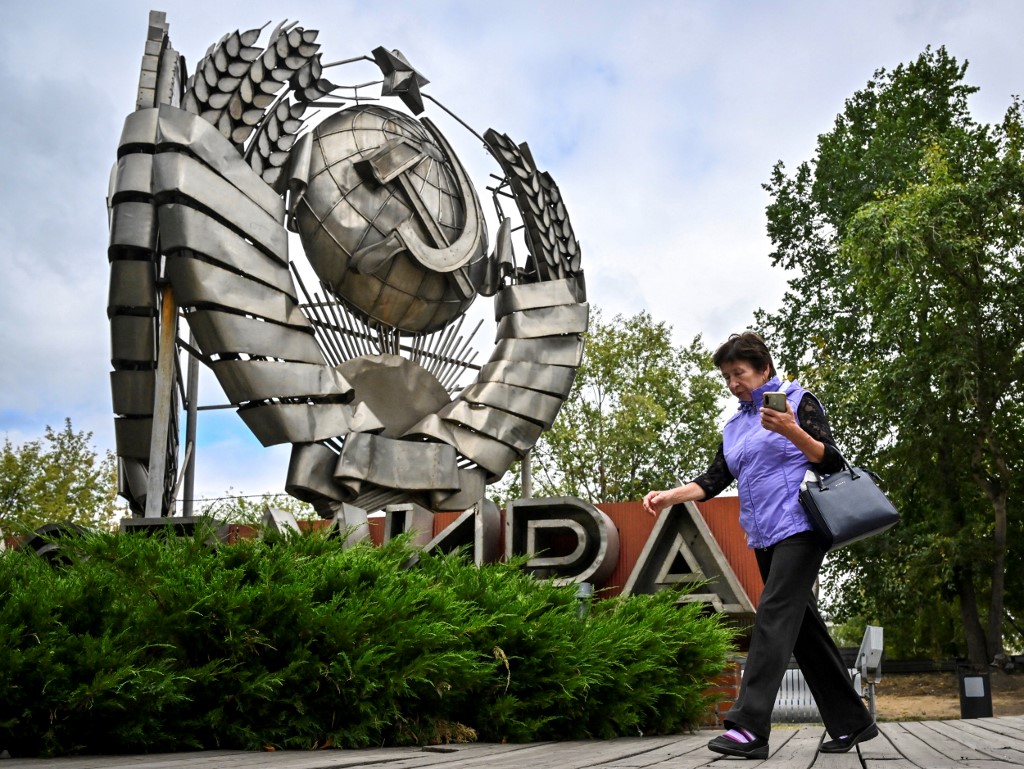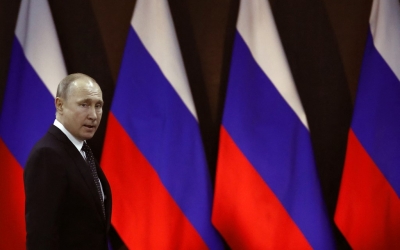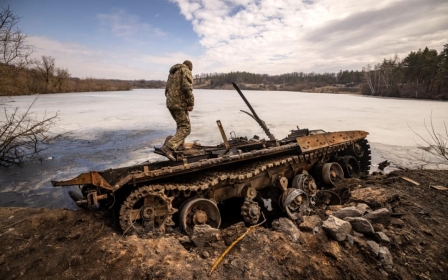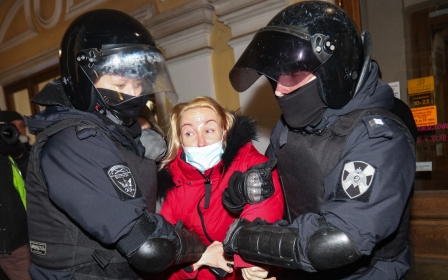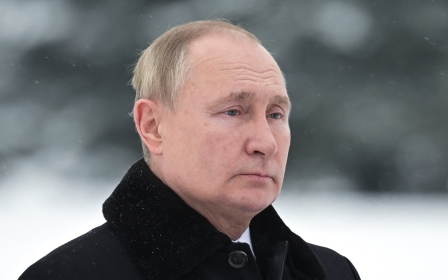The tragedy of Mikhail Gorbachev was written by the West
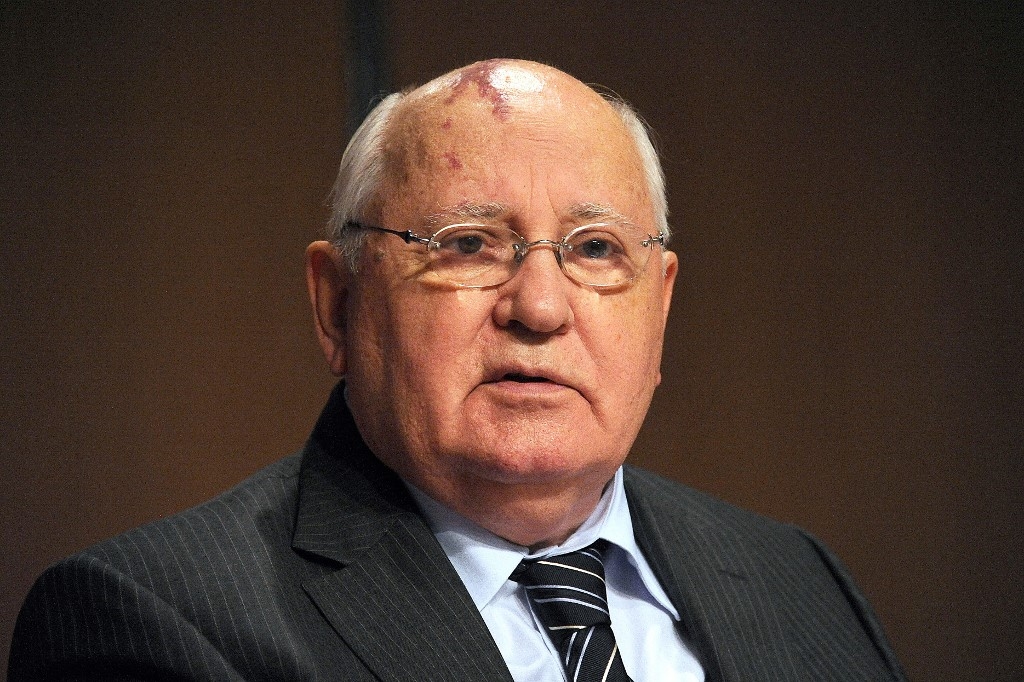
Mikhail Gorbachev died half a year too late. Had he passed away before 24 February, there is a chance that we would now be witnessing a parade of world leaders on their way to Moscow to show their admiration for one of the greatest statesmen of recent times.
This speculation is not certain, since Russian President Vladimir Putin’s attitude towards Gorbachev has always been ambivalent and long predates the war on Ukraine. Russia’s current ruler shares the view of many of his compatriots: namely that Gorbachev was responsible for diminishing Russia’s status as a global power by destroying the Soviet Union.
Still, Putin might have welcomed the opportunity to host a grand global occasion in the Russian capital. In death, Gorbachev would have brought about - if only temporarily - a reconciliation between his country and western leaders.
Western leaders also share the blame for Russia's retreat from liberal politics, which began long before Putin's installation as president
That is not to be. Putin’s invasion of Ukraine, and the West’s response of imposing an unprecedented panoply of sanctions, have created a deep freeze in relations, and a risk of nuclear confrontation more dangerous than the original Cold War. Gorbachev will be buried without many international mourners.
In their place, we have to make do with a cascade of oral tributes from western politicians and obituaries in the western media. A common and nauseating theme is the patronising way he is treated as a tragic figure. There is no better target for crocodile tears than a statesman who tries but fails.
New MEE newsletter: Jerusalem Dispatch
Sign up to get the latest insights and analysis on Israel-Palestine, alongside Turkey Unpacked and other MEE newsletters
Gorbachev is a perfect example, a man who opened Russia to the lifting of censorship, multi-party politics, genuinely contested elections and all the other freedoms and opportunities of democracy. In place of the Iron Curtain, he gave Russians the right to escape enforced isolation and travel abroad. He dismantled the Soviet empire in eastern Europe and allowed Russia’s subservient allies to recover their sovereignty.
Authoritarian traditions
But Russian traditions of authoritarianism, so the argument goes, were too strong to permit these liberal changes to become embedded. As evidence for that, one needs only to look at the way Gorbachev’s legacy has been undermined by the new tsar who holds power in the Kremlin today.
In place of free and fair elections, Putin has restored a system of de facto one-party rule, in which only a few opposition parties are allowed to take part, as long as they are too weak to obtain a majority of seats. Apart from a handful of fringe outlets, the media is under total Kremlin control, and politicians such as Alexei Navalny, who have managed to gain widespread support through social media, are put in prison on trumped-up charges.
The contrast between Gorbachev and Putin is stark. But the destruction of Gorbachev’s achievements is more complex than the work of one man. The West bears a significant share of responsibility, as do Russian officials, including the Communist Party conservatives who sabotaged market reforms and the radicals who wanted more sweeping economic change.
The food shortages and queues that blighted the last years of Gorbachev’s time in power were caused in large part by store managers and other retailers who preferred to sell on the black market rather than be restricted by low state-subsidised prices.
Persuaded by western advisers, the radical reformers under Gorbachev’s successor, Boris Yeltsin, ended subsidies overnight in January 1992, plunging Russia into 250 percent inflation in a single day and destroying people’s savings and pensions. They called it shock therapy.
Gorbachev had hoped to move gradually, but it was his bad luck that the western leaders who sent bankers and economists to Moscow were right-wingers such as Ronald Reagan, Margaret Thatcher and Helmut Kohl, who followed the so-called Washington Consensus - now largely discredited - of privatisation and deregulation.
This gave rise to the plague of oligarchs and exacerbated social inequality. What would have happened if social democrats, such as Willy Brandt, had still been in power in the West in 1990?
Egregious betrayal
Western leaders also share the blame for Russia’s retreat from liberal politics, which began long before Putin’s installation as president.
Yeltsin’s use of tanks to shell the Russian parliament in 1993 to end an opposition sit-in was a more serious outrage than any of Putin’s domestic policy excesses. The shelling was supported by Bill Clinton and John Major, then the US and British leaders.
They also approved the despatch to Moscow in 1996 of American election specialists, who advised the regime-controlled TV stations on how to discredit opposition candidates in the presidential election. It was an object lesson in media manipulation.
Clinton is responsible for the most egregious betrayal of Gorbachev’s legacy.
The last Soviet leader's dream that the end of the Cold War and the reunification of Germany would allow for the creation of a “common European home”, and the end of armed alliances confronting each other, has been airbrushed out of most of this week’s western eulogies. They ignore the malign consequences of the expansion of Nato that Clinton promoted.
Kremlin spokesperson Dmitry Peskov joined forces this week with the chorus of patronising western commentators, saying: “[Gorbachev] sincerely wanted to believe that the Cold War would end, and that it would usher in a period of eternal romance between a new Soviet Union and the world, the West. This romanticism turned out to be wrong.”
One need not go so far as Peskov in adding: “The bloodthirsty nature of our opponents showed itself. It’s good that we realised this in time and understood it.” But there is no doubt that western triumphalism after the Cold War blinded politicians to the need to treat Russia with respect. They preferred to enlarge Washington’s sphere of influence in states all along Russia’s borders.
Finally, we should not forget the legacy-destroying role of former US president George W Bush and former British prime minister Tony Blair. Their gratuitous, illegal and unprovoked invasion of Iraq in 2003 undermined the principles of international law that Gorbachev had done so much to get Soviet foreign policy to conform to.
By all means let us mourn Gorbachev, the man who did more than any of his contemporaries to change the world for the better. But let us not forget that most of the failures of his reforms were not his fault.
The views expressed in this article belong to the author and do not necessarily reflect the editorial policy of Middle East Eye.
Middle East Eye delivers independent and unrivalled coverage and analysis of the Middle East, North Africa and beyond. To learn more about republishing this content and the associated fees, please fill out this form. More about MEE can be found here.



